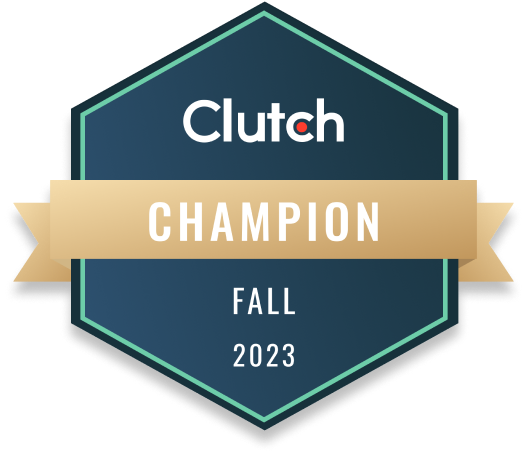Ever wished booking a hotel could be simpler and smarter? Imagine a world without long hold times, miscommunications, or language barriers. Well, that future is here, thanks to chatbots and AI in the hospitality industry.
Today, we live in a world where customer experience is everything in the hotel industry. And this needs constant tech advancements for how we interact with hotels.
Let’s dive into the world of conversational AI trip planners and see how they automate routine tasks while taking travel experiences to a whole new level.
Conversational AI Trip Planner in Hospitality
With the rise of machine learning and natural language processing, AI-powered chatbots are changing the game for hotels. People are now using AI to plan their trips, and these virtual assistants are available 24/7. Whether it’s booking a table at a restaurant, providing weather updates, suggesting local attractions, or quickly addressing concerns, travel AI chatbots are enhancing the guest experience in unbelievable ways.
This smooth operation is made possible by sophisticated rule-based algorithms or advanced AI technologies, trained using data from past interactions. This innovative approach boosts customer satisfaction and significantly improves overall operational efficiency.
Integrating a hospitality chatbot with a conversational interface cuts down on the time-consuming processes typically found in hotel experiences. No more waiting in line at the front desk for concierge services – tasks can be efficiently handled even before guests arrive at their rooms. This is the new standard of convenience and service in the hospitality industry.
Can An AI Trip Planner Transform the Travel Industry?
In the past, chatbots could only provide basic information before handing customers off to live representatives. But thanks to Natural Language Processing (NLP), chatbots have become much more sophisticated and capable.
What used to be clunky and limited technology is now evolving to replace mobile apps and websites, quickly becoming a vital part of the modern customer experience.
AI travel chatbot can help you streamline and enhance travel-related processes. They allow customers to interact directly with companies and government offices, cutting down wait times and offering a fast, intuitive, and seamless experience. Tasks are completed instantly, data is gathered efficiently, and issues are resolved—all without the need for human intervention. A Userlike survey found that 68% of users appreciate chatbots’ convenience and quick responses.
For service providers, chatbots offer significant cost savings by reducing the need for additional staff. Juniper Research estimated that chatbot-driven interactions would double retail sales annually, jumping from $7.3 billion in 2019 to $112 billion by 2023.
Many major companies have integrated AI trip planner technology into their customer service systems. All of this translates to its immense efficiency, versatility, and potential.
How Does an AI Travel Planner Chatbot Work?
Chatbots have become indispensable in the hotel industry, offering automated yet interactive guest interactions. Their functionality can differ based on their underlying technology, and generally, there are two main types in hospitality: Rule-Based Hotel Chatbots and AI-Based Hotel Chatbots.
Rule-Based Hotel Chatbots
Rule-based chatbots operate on predefined scripts and programmed responses. They follow specific instructions encoded into them, like following a flowchart to respond to guest inquiries.
Key Features:
- They can provide information on common questions like check-in/check-out times or Wi-Fi availability.
- They might offer generic responses or transfer the query to a human assistant for complex questions beyond their programmed scope.
- While AI bots are adept at managing intricate interactions, rule-based bots deliver precise answers to straightforward questions.
AI-Based Hotel Chatbots
With advancements in machine learning and natural language processing (NLP), AI-driven hotel chatbots offer a more sophisticated level of service.
Defining Characteristics
- Unlike rule-based bots, AI-powered chatbots utilize advanced algorithms to understand and engage in context-rich conversations.
- NLP capabilities allow these bots to grasp user intent, even with vague or varied inputs, providing personalized service around the clock.
- Their decision-making intelligence enables them to interact with guests throughout the booking process and optimize cross-selling opportunities.
- They continuously learn from previous interactions, enhancing their responses over time.
- Chatbots have revolutionized hotel operations, providing personalized and timely assistance. AI-based chatbots, in particular, represent cutting-edge innovation in hospitality technology.
Mastering these tools is crucial for success in the industry, making it important to seek courses or degrees that cover these advancements.
Critical Components of Conversational AI Technology
Understanding the core components of chatbots and AI technology is key.
- Natural Language Processing (NLP): NLP lets chatbots understand customer queries by turning spoken or written language into structured data, allowing for meaningful interactions.
- Machine Learning (ML): ML is crucial for predictive modeling. AI-powered systems learn from each interaction, using that knowledge to enhance future responses and become more knowledgeable with experience.
- Automation: Rule-based chatbots automate tasks like booking confirmations and check-in details, streamlining processes traditionally done manually.
- Integration with Internal Systems: Smooth integration with systems like CRS or PMS ensures that relevant data is easily accessible and shared across platforms, leading to consistent service delivery.
- Analytics and Reporting: A solid foundation in analytics and reporting provides insights into customer needs and preferences, helping hotels continually improve their services.
Benefits of Using AI Trip Planner for Hotels
AI travel planner chatbots have become invaluable for hotels, which boosts both guest services and operational activities. These AI-driven virtual assistants streamline internal processes, making them indispensable tools for modern hotels.
24/7 Customer Service
AI travel chatbot is available around the clock, ensuring guests receive immediate assistance anytime they need it. Whether it’s through a mobile app or another platform, guests can always feel heard and supported.
Increase Direct Bookings
Integrating chatbots into the hotel industry is a smart strategy for boosting direct bookings. A well-designed chatbot can efficiently handle customer queries about amenities, rooms, and services, speeding up decision-making and increasing reservations directly through the hotel’s website.
Support Throughout the Booking Journey
AI trip planner does more than just handle bookings. They assist guests throughout the booking process, from choosing the perfect room to providing information on discounts and offers. These virtual assistants guide guests every step of the way until their reservation is confirmed.
Communicate in Multiple Languages
We would say one of the best features of hospitality chatbots is their ability to communicate in multiple languages. These features cut out the need for expensive human translators. This is a huge plus in the global hospitality industry. AI-powered chatbots are available 24 hours a day to make sure every visitor gets answers, no matter what language they speak.
Up-Sell and Cross-Sell Opportunities
Travel chatbots are great at bettering your customer interactions. Based on the data, they understand customer preferences much better. What this means is that they can upsell and cross-sell effectively during conversations. For instance, if a guest books a room, then the chatbot can suggest spa packages or dinner reservations. This would add a personalized touch that would refine the guest experience and boost revenue.
Personal Experience
Travel AI chatbots in hotels store guest information, such as previous bookings and special requests. This enables them to offer more personalized experiences in the future, making guests feel recognized and appreciated.
A More Efficient Customer Experience
AI trip planner makes hotel booking smarter and faster. AI chatbots streamline navigation through various hotel services by minimizing wait times, offering alternatives, and providing quick solutions.
Reduced Burden on Customer Service Staff
Chatbots can handle common inquiries like checking room availability or addressing basic concerns, freeing up human staff to focus on more complex customer issues. What this means is that you get reduced staff workload and stress levels and boost overall job satisfaction.
Personalized Promotional Efforts
AI trip planners can analyze user interactions to tailor personalized promotional messages, improving click-through rates and driving sales.
Follow Up with Your Guests
AI travel planner chatbot maintains communication with guests even after their stay. These bots ensure your establishment’s memorable by requesting reviews or offering incentives for future visits.
Use Cases of Conversational AI in Hospitality
An AI trip planner can change the hospitality industry’s various aspects of the guest experience. Let’s explore some notable examples:
Room Booking
AI travel planner chatbot streamlines the hotel room booking process. Guests can easily interact with a chatbot via a messaging platform to make reservations. These chatbots retrieve real-time availability information from integrated systems, allowing quick and direct bookings without hotel staff intervention. AI technology ensures accurate data compilation for each interaction, providing error-free booking options at guests’ fingertips.
Customer Service
Chatbots are incredibly beneficial for customer service. They quickly address frequently asked questions, reducing wait times and enhancing customer satisfaction. Chatbots ensure uninterrupted support even beyond regular business hours or during peak periods by delivering consistent responses around the clock.
Personalized Recommendations
AI-equipped chatbots provide personalized travel recommendations, such as highly-rated local restaurants or upcoming events. By analyzing user preferences and past interactions, AI-based suggestions cater to individual guest needs, demonstrating a deep understanding and dedication to guest satisfaction.
Online Brand Management
Chatbots are valuable for more than just customer support; they also play a key role in online brand management. By monitoring online reviews and hotel mentions on social media, these bots gather feedback and provide insights to enhance reputation management strategies and appeal to potential guests.
Price Optimization
Price optimization is a significant application of the AI trip planner in the hotel industry. Dynamic pricing models are developed using machine learning and integrated with hotel AI technologies. These models allow hotels to adjust their rates based on factors like occupancy patterns, competitor prices, or market demand. This ensures that each room generates maximum yield, contributing to increased revenue and improved financial performance.
AI Trip Planner Examples
In the travel industry, a few companies have embraced Generative AI to transform their operations and enhance customer experiences. Those who have integrated AI travel planner chatbot is enjoying the benefits of streamlined processes and improved efficiency.
Easyway Integrates GPT-4
Easyway’s integration of GPT-4 technology marks a significant advancement in hotel-guest interactions. By combining the sophisticated AI trip planner capabilities of GPT-4 with Easyway’s existing AI models, hotel staff are equipped with powerful tools to engage with guests more effectively. This innovative approach sets a new standard for communication within the industry, ensuring a seamless and personalized guest experience.
Introducing Easyway Genie, powered by GPT-4, this feature revolutionizes communication between hotel receptionists and guests. It instantly analyzes guest messages and conversation history to provide personalized response suggestions, enabling receptionists to review and send them with a simple click.
HiJiffy Hotel Integrates Aplysia x GPT-4
HiJiffy has launched version 2.0 of its platform, using a Generative AI trip planner to enhance guest communication. This technology operates across the hotel’s website, social media, and messaging apps and supports the entire customer journey from pre-booking to post-stay.
Generative AI chatbots can answer frequently asked questions with tailored responses, eliminating the need for lengthy pre-determined texts. The AI system understands complex queries and can interpret incomplete sentences, making interactions more efficient. By generating responses based on conversation history, these chatbots save time for front office staff, allowing them to focus on more complex tasks.
Book Me Bob Now Integrating with ChatGPT
Book Me Bob is an advanced AI trip planner designed to enhance guest interactions. It recalls conversations instantly, providing personalized and memorable experiences. Bob’s human-like interactions create a seamless and engaging environment for guests. Trained to answer 330,000 hotel-related questions and continuously learning, Bob is a versatile asset for international guests, offering multilingual support in languages including English, Chinese, French, German, Spanish, Indonesian, Vietnamese, Hindi, and Thai.
Integrating ChatGPT into the Expedia App
Expedia, a global travel brand, is enhancing its services with a ChatGPT-powered AI trip planner. Currently, in beta testing, this feature allows travelers to plan their trips using AI-driven assistance. Users can access the ChatGPT-driven planner on their iOS devices through the Expedia mobile app, with an Android version coming soon. This partnership with OpenAI enables travelers to start a dialogue on the ChatGPT website and use the Expedia plugin to plan their trips, offering a comprehensive travel planning experience.
Real-Time Travel Guide “TripGen”
Trip.com has introduced TripGen, an AI trip planner that provides live travel assistance. This chatbot offers personalized travel routes, itinerary suggestions, and booking advice in real time. TripGen, available on the Trip.com platform, is changing the travel game by offering real-time travel tips, inspiration, and itinerary recommendations. With its all-in-one app, Trip.com covers everything from flights and hotels to travel guides. This is a sureshot way to get no stress while planning a trip.
TripGen uses advanced Natural Language Processing (NLP) to understand and respond to complex or vague questions, helping users effortlessly generate their dream trips. This feature allows travelers to input any travel-related questions and receive immediate suggestions for pre-trip decisions and in-trip arrangements, including flights, hotels, transportation, and tours.
Conclusion: Leverage AI Trip Planner now!
In the hospitality industry, chatbots and AI have become essential. These virtual assistants provide round-the-clock support and assistance, boost direct bookings, and offer personalized experiences throughout the booking process. Their presence undeniably enhances operational efficiency.
While implementing this technology comes with challenges, such as ensuring intuitive security measures, the benefits far outweigh the limitations.
Want to make the most of an AI trip planner? Let’s talk about it.

Start a Project with Ajackus

































